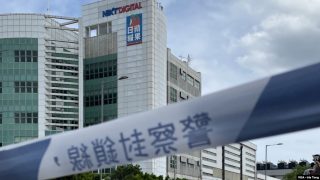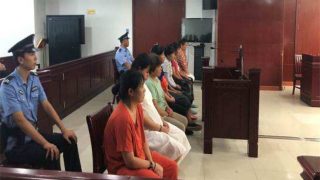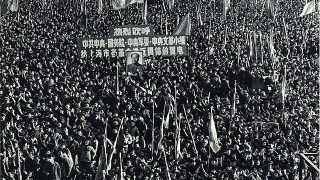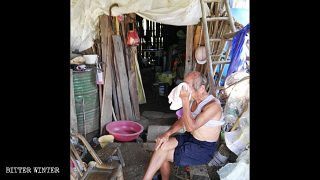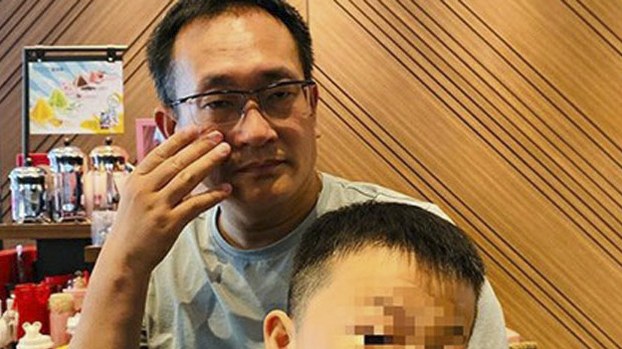
Chinese human rights attorney Wang Quanzhang, who recently served a four-and-a-half-year jail term for “subversion,” has filed an official complaint against his treatment at the hands of law enforcement officials, he told RFA.
Speaking on the anniversary of the July 9, 2015 crackdown on human rights lawyers, law firms and related activists, Wang said he filed the complaint after recuperating for several months with his family in Beijing.
In a post to the social media platform WeChat on July 8, Wang accused the Tianjin No. 2 Intermediate People’s Court of violating procedure and denying the facts of his case, in what he described as an “extremely serious illegal operation” against him.
He said he had filed a legal complaint at Beijing’s Chaoyang District People’s Court against some of the officials involved in his case.
The post was later apparently deleted by WeChat censors.
In his complaint, Wang says China’s legal profession just needs the basic rights and freedoms enshrined in China’s constitution to thrive, rather than “the sun, the moon and the stars.”
“I filed the legal complaint [on July 8], and the court accepted it,” he told RFA’s Mandarin Service.
“My lawsuit includes the time I was held under residential surveillance at a designated location, the torture the police meted out to me during interrogation to try to force me to confess, and insults and humiliation directed at me by state prosecutors during the trial period,” he said, but declined to give further details.
Wang said he filed the complaint regardless of its chances of being upheld in a judicial system that is controlled by the ruling Chinese Communist Party.
“If a citizen believes that they have been unjustly treated and that the charges against them were unjust and trumped-up, then they should take measures to make that right,” Wang said.
“Of course, there are huge limits to the power of an individual, but I still think I should do this, given the climate we live in … regardless of whether or not I get the result I want,” he said.
He called on citizens and fellow activists to keep working for a better society.
“Chinese people from all walks of life need to do everything in their power to work for a society that respects human rights and the rule of law, and they need to work together,” Wang said.
“Freedom comes at a price … but this is suffering that must be borne. Failure by no means indicates that the search and the struggle are over,” he said.
“Even if I stop, other people will keep up the work against subversion charges and miscarriages of justice.”
Wang said he took a few months off following his release from Linyi Prison in the eastern province of Shandong, having been finally allowed to return to his family home in Beijing in the face of official obstruction.
“When I had just gotten out of jail, I was in a bit of a daze, and lacked energy,” Wang said. “But I am gradually starting to feel normal again after these past few months of recuperation.”
“I now feel able to deal with certain things again, such as responding to questions from the public and from the media,” he said.
Wang has previously alluded to torture allegations during his time in RSDL, and also to breaches of the criminal procedural code he said had robbed him of the chance of a fair trial.
According to Cheng Hai, who defended Wang from 2015 to 2018, the authorities refused to allow at least five lawyers appointed by Wang Quanzhang during his detention to meet with him.
A nationwide police operation under the administration of President Xi Jinping has targeted more than 300 lawyers, law firms, and related activists for questioning, detention, imprisonment, debarring, and travel bans since it launched in July 2015.
Reported by Han Jie for RFA’s Mandarin Service. Translated and edited by Luisetta Mudie.
Source: Copyright © 1998-2016, RFA. Used with the permission of Radio Free Asia, 2025 M St. NW, Suite 300, Washington DC 20036. https://www.rfa.org.
